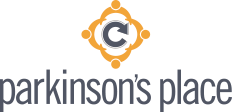From a distance
Care giving is hard work and vastly under appreciated. It’s one of the things we will all almost certainly do in our lifetime, whether its for an aging parent, spouse, child or loved one in some other capacity. It requires us to get beyond ourselves and advocate for another person.
When I made the first Boys of Summer documentary, my dad was considered early onset PD and his symptoms were relatively minor. He was admittedly a bit slower and some things, like rhythm, didn’t work the way he was used to anymore (he was quite a dancer in his time) - but he didn’t need much help or extra attention at the time.
Dad lived in the east San Francisco Bay Area home I grew up in. I lived in Las Vegas. We spent the summer of 2004 together and laid the foundation for coming to grips with the reality of PD against the hope for a cure that many felt confident in at the time.
Ten years later, when I made the follow up film, Second Base, dad needed more - more than either he or I realized at the time. Part of the reason he needed more was the progression of PD. Part of it was how he was managing (or not managing) it. Part of it was the awareness and help he was getting (or not getting) in dealing with the truth of PD. Part of it was our distance - since I wasn’t around to help honestly assess things and he would rather not face them, we were both in a bit of ignorant denial.
That’s when I learned to become a care partner - though I didn’t think of it that way. I spent three months with my dad at a doctor’s office up to five days a week, getting treatment and discussing health, broadly and specifically within PD. If I hadn’t been in the appointments with my dad, much of the discussion about how to live and consider how to approach health would likely not have happened. Dad’s a quiet guy. I like to ask questions.
One of the results of our time together was a new approach to health and how he could live his best. Another was Second Base - which has gone on to play very well and even spark the third film, Short Stop - which I hope to have ready to screen in the summer of 2019. At one of the screenings, Colleen Fischer of the Parkinson Foundation said it was a textbook on how to be a caregiver. That was the first time I’d heard that term applied to me.
When that film was said and done, dad went back home and I stayed in Las Vegas. It’s very difficult being in a care partner role at a distance. There are huge blind spots for me with him in terms of what he’s getting or not getting, how well he eats, how clean the house is, how safe he is driving, paying bills, being preyed upon by scammers, etc..
Some things I’ve been able to work with dad on include social engagement - making sure he goes to groups like Rock Steady Boxing, Dance with PD and his group of golfers. I’ve also signed him up to Blue Apron to try their food service so I know he’s getting a complete meal at least once in a while. He’s been a good cook for almost my entire life, but shopping’s never been his thing.
We talk several times a week, but the phone, too, isn’t his favorite thing. My dad is best in face to face engagement. Sometimes a proxy helps us get going - like a baseball game, classic movie or a board game. We can always get there - it just sometimes takes a little priming of the pump.
I continue to explore ways to have a positive impact on my dad’s life, even though I’m hundreds of miles away. Studying and working with my awesome teammates at PPLV and all our partners helps me help him. We know there are no easy answers, but I hope you’ll share your stories and reach out to this community. We never know how we’re going to impact each other - directly or indirectly, locally or at a distance.
written by - Robert Cochrane
